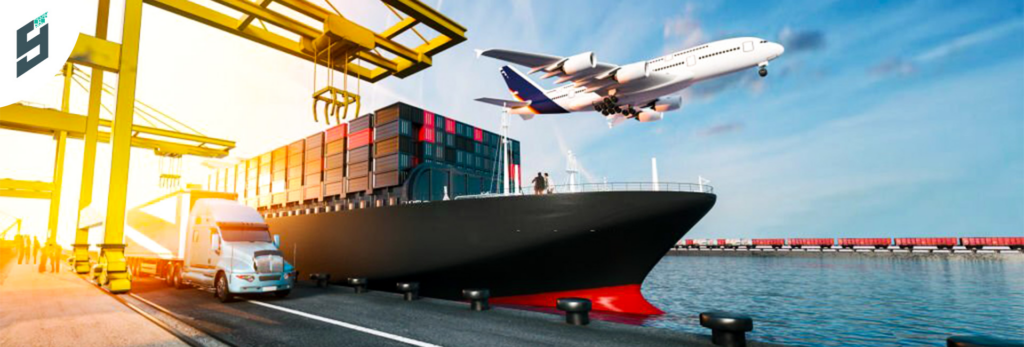
In today’s increasingly interconnected world, freight forwarding and the role of ocean carriers are essential elements of international shipping. From transporting goods to their destination quickly and economically to providing customers with logistical insights, many businesses rely on sea transportation to move their products around the globe.
Table of Contents
This blog post provides a comprehensive guide to everything you need to know about using ocean carriers in your international shipping operations. We’ll cover the basics of freight forwarding, how to identify trustworthy ocean carriers, and how to maximize efficiency when shipping goods internationally.
You’ll also learn about the legal and environmental considerations that come with ocean transportation, the importance of properly preparing your cargo for transport, and tips for managing freight forwarding costs.
Whether you are a business looking to expand your international reach or an individual interested in learning more about this topic, this guide will provide you with the information you need to successfully utilize ocean carriers for your shipping needs.
The Role of Ocean Carriers in the Freight Forwarding
The role of ocean carriers is vital in freight forwarding. An ocean carrier manages the shipment of goods between ports and countries. They are also responsible for ensuring that all shipments are handled by applicable regulations and laws, including customs clearance procedures, environmental safety standards, and insurance requirements. Ocean carriers typically provide access to a global network of transportation services, including steamship lines, vessels, ports, and terminals. They also provide a range of services which include document preparation, tracking capabilities, and marketing assistance for their customers.
In addition to providing transportation services, ocean carriers also play an important role in helping customers understand their freight forwarding options. They can provide information on the best routes to take, tariffs associated with the shipment, and other details that can help customers get the most out of their freight forwarding experience.
Unsurprisingly, ocean rates are less expensive than air rates. But there are tradeoffs. If speed is a priority, you may want to look elsewhere. Ocean shipments take over one month to be delivered, whereas air shipments take a few days. Reliability is also a factor that should be considered. While air shipments run on a very tight schedule, it’s not uncommon for freight ships to take longer than expected to embark.
Benefits of Using Sea Transportation for International Shipping
1. Cost-effective
Sea transportation is generally the most cost-effective option for shipping goods internationally, particularly for large quantities or heavy cargo. It is often less expensive than air freight and can be more reliable than land transportation in some cases.
2. Efficient
Ocean carriers are able to transport large quantities of goods at once, making sea transportation an efficient option for shipping goods over long distances. Container ships, in particular, are designed to transport large quantities of goods efficiently and cost-effectively.
3. Reliable
Sea transportation is a reliable option for shipping goods internationally, as ocean carriers operate on fixed schedules and routes. This makes it easier to predict delivery times and plan logistics around the transportation of goods.
4. Environment-Friendly
Sea transportation is a more environmentally friendly option compared to other modes of transportation, as it generates lower levels of carbon emissions. This makes it an attractive option for businesses looking to reduce their carbon footprint.
5. Versatile
Sea transportation is versatile and can be used to transport a wide variety of goods, including bulk cargo, containers, vehicles, and hazardous materials. This makes it a suitable option for many different types of businesses and industries.
Types of ocean carrier services
• Containerized shipping: The ocean carrier will pick up cargo from the supplier, store them in a container, and transport it to its final destination. This type of service is ideal for large shipments of goods.
• Break bulk services: Breakbulk shipping involves transporting cargo that cannot be contained in regular containers such as heavy machinery or vehicles. The ocean carrier will load the cargo onto the vessel and transport it to its destination.
• Transshipment services: Transshipment is a process where goods are transferred from one vessel to another at certain ports of call to reduce overall travel time. This type of service is often used for large shipments that need to travel long distances.
• Consolidation services: Consolidation is a service provided by the ocean carrier that allows multiple shipments to be combined into one shipment to reduce costs. This type of service is ideal for smaller shipments as it reduces overall shipping expenses.
• Customs clearance assistance: Ocean carriers can assist shippers in clearing the goods through customs at their final destination. This service ensures that all paperwork is completed correctly and timely, ensuring a smooth delivery process.
FCL & LCL
Ocean freight shipping presents a reliable means of large-volume transportation, with options designed to accommodate varying cargo sizes. Two of these include FCL and LCL shipping. For FCL shipments, all goods in a container are owned by one party, while LCL involves multiple shippers’ goods packed together. Business needs and inventory requirements determine a company’s shipping decision, along with factors like cost and commodity type.
- Full container load (FCL)
In general, you should ship full containers (FCL) when your shipment is large enough to fill an entire container on its own. When shipping FCL, the ocean carrier will pick up the cargo from your supplier and store it in a dedicated container that will remain with your shipment until it arrives at its destination. This type of service provides more security for your shipment and also reduces potential damage as the container can be sealed at all times.
FCL shipments are typically made by businesses that sell expensive or luxury products, even if their shipments are not large enough to fill an entire container.
- Less than container load (LCL)
Less than container load (LCL) is ideal for smaller shipments where the cargo does not fill an entire container on its own. In this case, multiple shipments will be consolidated into one container and transported to their destination. The advantage of LCL is that it allows you to save money on shipping expenses as multiple shipments are combined into one container. The downside of LCL is that the handling and storage of your cargo may not be up to the same standards as FCL due to the increased number of parties involved in the transportation process.
Because of its low cost, this sort of distribution is popular among startups and businesses with minimal profit margins.
Specialized Ocean Carrier Services (Hazardous materials, Temperature-controlled)
Specialized ocean shipping is shipments of hazardous materials, temperature-controlled cargo, and high-value goods. These services ensure that your shipment is handled safely and securely throughout the entire transportation process.
Hazardous materials
Some ocean carriers offer specialized services for transporting hazardous materials, such as chemicals and petroleum products. These carriers are equipped with specialized tanks and piping systems to safely store and transport these types of cargo.
Temperature-controlled
Ocean carriers also offer specialized services for transporting perishable goods, such as fresh produce and pharmaceuticals. These carriers are equipped with temperature-controlled containers, known as reefers, to maintain the appropriate temperature for the cargo being transported.
Roll-on/roll-off (Ro-Ro)
These carriers are designed to transport vehicles, such as cars, trucks, and buses. They are equipped with ramps and other specialized equipment to load and unload vehicles efficiently.
Project cargo
Some ocean carriers offer specialized services for transporting large or heavy items, such as construction equipment, wind turbines, and oil rigs. These carriers are equipped with specialized loading and unloading equipment to handle the specific type of cargo they are designed to carry.
Choosing the right ocean carrier services for your business
It is essential for successful ocean freight shipping. UPS Supply Chain Solutions offers a wide range of services to meet your needs, from FCL and LCL shipping to specialized ocean carrier services, RoRo/Lo Lo cargo handling, breakbulk, and project cargo services. With our expertise in the area of international logistics, we can ensure that your shipment is handled safely and securely, while also providing you with the peace of mind that it will arrive on time.
Tips for optimizing your use of ocean carrier services
1. Research different ocean carriers to find the one that best suits your needs and budget.
2. Negotiate rates and services with multiple providers.
3. Make sure to read all of the terms and conditions before signing any contracts or agreements.
4. Evaluate performance regularly and take corrective action if necessary.
5. Utilize available tracking tools to stay informed on the progress of your cargo.
6. Keep up to date with changes in the shipping industry, such as new regulations or technologies, that may affect your shipments.
7. Plan ahead and book space far enough in advance to ensure you get the best rates.
8. Ensure that the documentation you provide is accurate and up to date.
9. Communicate regularly with your ocean carrier to ensure that any issues are resolved promptly.
Using an experienced ocean carrier for your international shipping needs can help you save time, and money, as well as guarantee the safe and secure delivery of your goods. With the right provider, you can trust that your shipments will arrive on time and as expected.
The Future Outlook & the Evolving Role of Ocean Carriers
The future for ocean carriers is bright, as new technologies and regulations are making it easier to transport goods across the world’s waterways. With increased automation, improved tracking systems, and more efficient shipping processes, ocean carriers will continue to play an important role in international commerce. In addition, more stringent environmental regulations have prompted a focus on sustainability in the industry, with many carriers taking steps to reduce their carbon footprint. As a result, you can trust that your goods will be delivered safely and responsibly when using an ocean carrier for your international shipping needs.
By leveraging the expertise of a reliable service provider and tapping into the latest technologies available, you can enjoy the benefits of using ocean carriers for your international shipping needs. From accurate rate quotes to intelligent data and analytics, UPS Supply Chain Solutions is here to help you optimize your supply chain. Contact us today to learn more about how we can assist you with your international shipping needs.
UPS is a proud courier partner of Global Shopaholics and you can shop and ship all you want from Global Shopaholics and get all your shipping needs fulfilled without the inconvenience and with commendable services.
So, what’s the wait?


